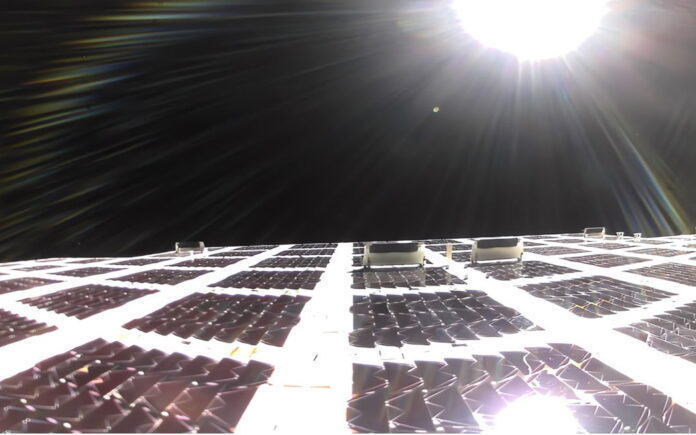Talk to the handset, satellites will be told
Rakuten Symphony software is being integrated into AST SpaceMobile’s space-based cellular network as the Japanese mobile operator prepares for end-to-end testing of links between the BlueWalker 3 low earth orbit test satellites and smart phones on the Rakuten Mobile’s network.
This week (Nov 10) RM obtained preliminary experimental test station licenses on to conduct mobile communication tests and preliminary verification in Japan using AST SpaceMobile’s low earth orbit satellite, BlueWalker 3.
AST SpaceMobile is building what it claims is the first space-based cellular broadband network accessible directly by standard unmodified mobile phones. It aims to offer mobile comms services using AST SpaceMobile’s planned network to connect to smartphones in mountainous areas, remote islands and other areas of Japan that are commonly out of range of mobile communication services. It also wants to create stronger options for network resilience in times of disaster.
In order to conduct communication tests between the test satellite launched by AST SpaceMobile and gateway earth stations in Japan and to perform preliminary verification with smartphones, Rakuten Mobile made applications to both the Tohoku Telecommunications Bureau for a Gateway Experimental Test Station license, the equivalent to a mobile base station, and to the Kanto Telecommunications Bureau for a Mobile Terminal Experimental Test Station license, which is the equivalent to a portable mobile base station. Both applications have now been approved.
On receiving the licenses, Rakuten Mobile will begin to prepare a gateway earth station, equivalent to a mobile base station, in Fukushima Prefecture to test and verify direct communication between BlueWalker 3 and mobile devices in mountainous areas in Hokkaido.
To enable testing with Rakuten Mobile and other carriers, Rakuten Symphony will provide a variety of software from its Symworld product portfolio to AST SpaceMobile to be integrated into the company’s satellite system and enable the company’s space-based cellular broadband network. The software to be integrated includes Rakuten Symphony’s vRAN (virtualized Radio Access Network) software, OSS (Operations Support Systems) and BSS (Business Support Systems) software.
There are quite a few contestants in the 5G to Space race. Omnispace describes its ambition as being the world’s first ‘truly global’ 5G network provider because it will unite mobile roaming with satellite technology. However, it has competition. Three Telefónica divisions, Telefónica Tech and Telefónica Global Solutions (TGS) and Sateliot, a satellite telecoms operator, are creating a global satellite service using Low Earth Orbit (LEO) constellations to provide 5G NB-IoT connections. Equipment maker Ericsson, French aerospace group Thales and US chipmaker Qualcomm are also working on a satellite-driven 5G network to improve terrestrial coverage.



